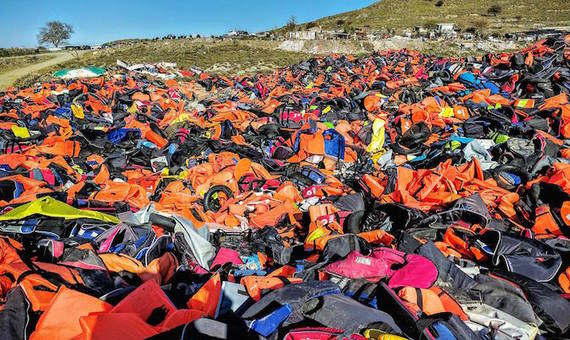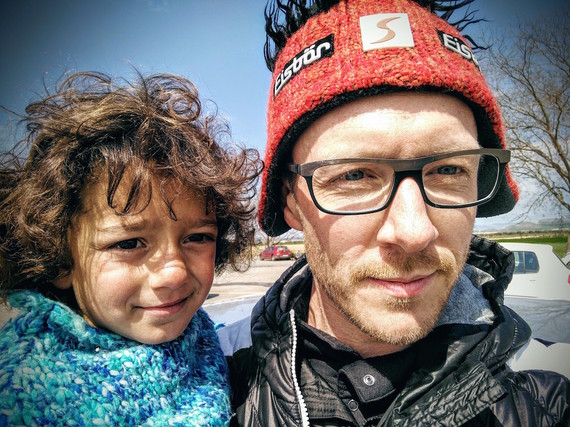For the last five months Josh Webb has been volunteering at Moria refugee camp in Greece. New Zealand-born, Josh relocated to New York City in 2007, landing a job as Director of Digital Products at MTV. In November 2015 he left MTV, packed a bag and hit the road. While travelling in India he received a message from a friend, saying she had started volunteering at a refugee camp on the island of Lesvos - a main landing ground for those attempting to claim asylum in Europe by journeying from Turkey with so-called people smugglers. Josh was soon also Lesvos-bound, and would end up at Moria.
Since the signing of the March 18 EU-Turkey agreement things have complicated further for refugees: those who make the often treacherous crossing from Turkey to Greece now risk being returned directly to Turkey, rather than being held for processing. Reaction to this change has been mixed, with the EU saying the agreement "targets the people smugglers' business model and removes the incentive to seek irregular routes to the EU, in full accordance with EU and international law", while critics argue it breaks international law, potentially endangers asylum seekers further, and is an affront to their human rights. I asked Josh for a firsthand take.
What is the current situation in Lesvos?
Lesvos is now pretty quiet in terms of smuggling refugees. It got very quiet last month, when Frontex - the EU border police - and the Hellenic coastguard dramatically stepped up their patrols, which also coincided with the closing of the Macedonian border. Smugglers were worried about operating with increased scrutiny and I think refugees decided to 'wait and see' what would happen, by and large. Many of the refugees that were still coming were from non war-torn countries, so the voices echoing around Moria camp was suddenly speaking Urdu and Punjabi rather than Arabic and Farsi. It was very different in March than it was in December and January, when I previously visited. Totally different mood and less sense of urgency, and the volunteer crews had become well-oiled machines rather than the mad rush of earlier in the year.
Who have you been you working with in Lesvos?
I moved to the mainland - Idomeni area, north of Thessaloniki, near the Macedonian border - because that's where the approximately 45,000 refugees are living as they wait for something to happen. What are they waiting for? Borders to open? Greece to suddenly become a place of opportunity? Allah to deliver a miracle? They are the group that is sandwiched in the centre of two other refugee groups - the first was the large mass that were offered passage and asylum in western Europe, and the other is everyone who arrives from now on and will be deported to Turkey or their home countries. But the ones in Idomeni are in limbo, maybe for the foreseeable future. The vast majority are Syrian and Kurdish.
Are you able to comment on the March 18 agreement that essentially facilitates the return of refugees from Greece to Turkey?
All I know is that it's happening, and affecting those who arrive now, but not those who were already in Greece before March 20. The ones who made it before the deal was done are the people I've been working with. They are now being slowly moved to Greek military-controlled camps - that's being kept pretty quiet - but also have access to a system of application for relocation in the EU. It can take months and they don't get to choose where they are taken, so it rules out any family reunions. The application process involves them making a Skype call to an account that never seems to be available. I tried calling it and a number of Syrians showed me their call logs, being unanswered repeatedly. It's very mickey mouse. Many of them have refused to do it because it means they might be sent to some place like Bulgaria or Serbia where, in their opinions, they would probably be worse off than they already are in Greece. So they sit and wait. And protest.
For more information, and updates follow Josh on Facebook. Help him stay on the move by donating here.


